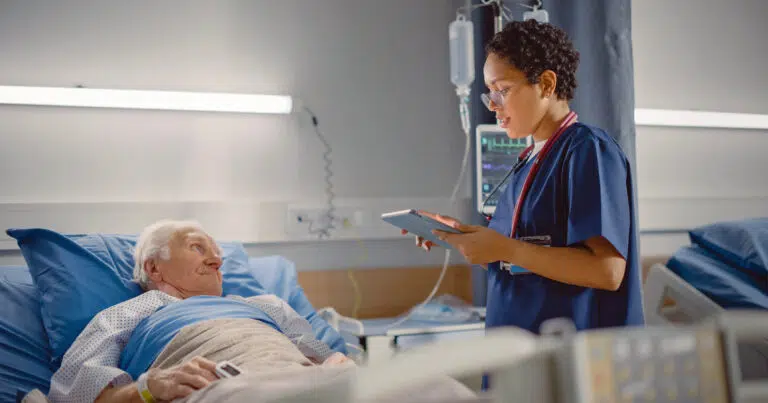Stroke Nurse Career Guide
Looking for a different career guide?
Overview
A Stroke Nurse is a specialized registered nurse who focuses on providing care to patients who have experienced a stroke. These healthcare professionals play a critical role in the assessment, treatment and management of stroke patients to promote recovery and prevent complications. Essential job functions in this specialty include conducting neurological assessments, administering medications, monitoring vital signs, implementing stroke care protocols, educating patients and their families about stroke prevention and management and collaborating with a multidisciplinary team to optimize patient outcomes.
Education
To become a Stroke RN, aspiring nurses must first complete a nursing education program and obtain a registered nursing license. This typically involves earning an Associate Degree in Nursing (ADN) or a Bachelor of Science in Nursing (BSN) from an accredited institution. ADN programs usually take about two to three years to complete, while BSN programs generally require four years of study. After completing the nursing program, graduates must pass the National Council Licensure Examination for Registered Nurses (NCLEX-RN) to become licensed to practice nursing.
Skills
Staff and Travel Stroke RNs require a range of knowledge, hard skills and soft skills to succeed in their specialty. Firstly, they must have a strong understanding of stroke pathophysiology, treatment options and the latest evidence-based practices in stroke care. Proficiency in conducting neurological assessments, interpreting diagnostic tests and identifying neurological deficits is vital for accurate patient evaluations.
Hard skills encompass the ability to administer medications, perform procedures like IV line insertions and operate medical equipment commonly used in stroke care, such as electrocardiogram (ECG) machines and intracranial pressure monitors.
Soft skills are equally crucial. Empathy and effective communication enable Stroke RNs to connect with patients and provide emotional support during their recovery journey. Critical thinking skills help them quickly recognize changes in a patient's condition and respond appropriately. Adaptability is necessary in fast-paced, ever-changing healthcare settings.
Responsibilities
Stroke RNs play a pivotal role in providing comprehensive care to stroke patients. They work closely with physicians to develop and implement individualized care plans, which may include medication administration, wound care and rehabilitation therapies. Monitoring patients' neurological status, vital signs and response to treatment is a continuous responsibility.
Education is a significant aspect of the role. Stroke RNs educate patients and their families about stroke risk factors, lifestyle modifications, medication management and warning signs of recurrent strokes. They also provide support to patients as they adjust to life after a stroke and collaborate with occupational and physical therapists to aid in the recovery process.
Salary Insights
The average salary for a Stroke Nurse is $1,968.48 per week.
Last updated on April 24, 2025. Based on active jobs on Vivian.com.
Pros & Cons
Pros:
Impactful Career: Being a Stroke RN allows you to make a significant difference in patients' lives by helping them recover from a stroke and regain independence.
Growing Demand: With an aging population, the demand for skilled stroke care professionals is on the rise.
Career Advancement: Stroke RNs can pursue advanced certifications and specialization in neuroscience nursing, opening up opportunities for career growth.
Learning Opportunities: The field of stroke care is constantly evolving, providing opportunities for continued learning and professional development.
Team Collaboration: Working in a multidisciplinary team fosters a collaborative and enriching work environment.
Cons:
Emotional Challenges: Dealing with stroke patients and witnessing their struggles can be emotionally taxing for Stroke RNs.
Stressful Environment: Healthcare settings can be fast-paced and high-stress, demanding quick thinking and effective decision-making.
Physical Demands: Caring for stroke patients may involve lifting and assisting with mobility, leading to physical strain.
Long Hours: RNs often work long shifts, including weekends and holidays, to provide 24/7 patient
Some of the content on this page was enhanced using artificial intelligence.
Join over 1 million healthcare workers that are getting a head start with Vivian.
Join Vivian







